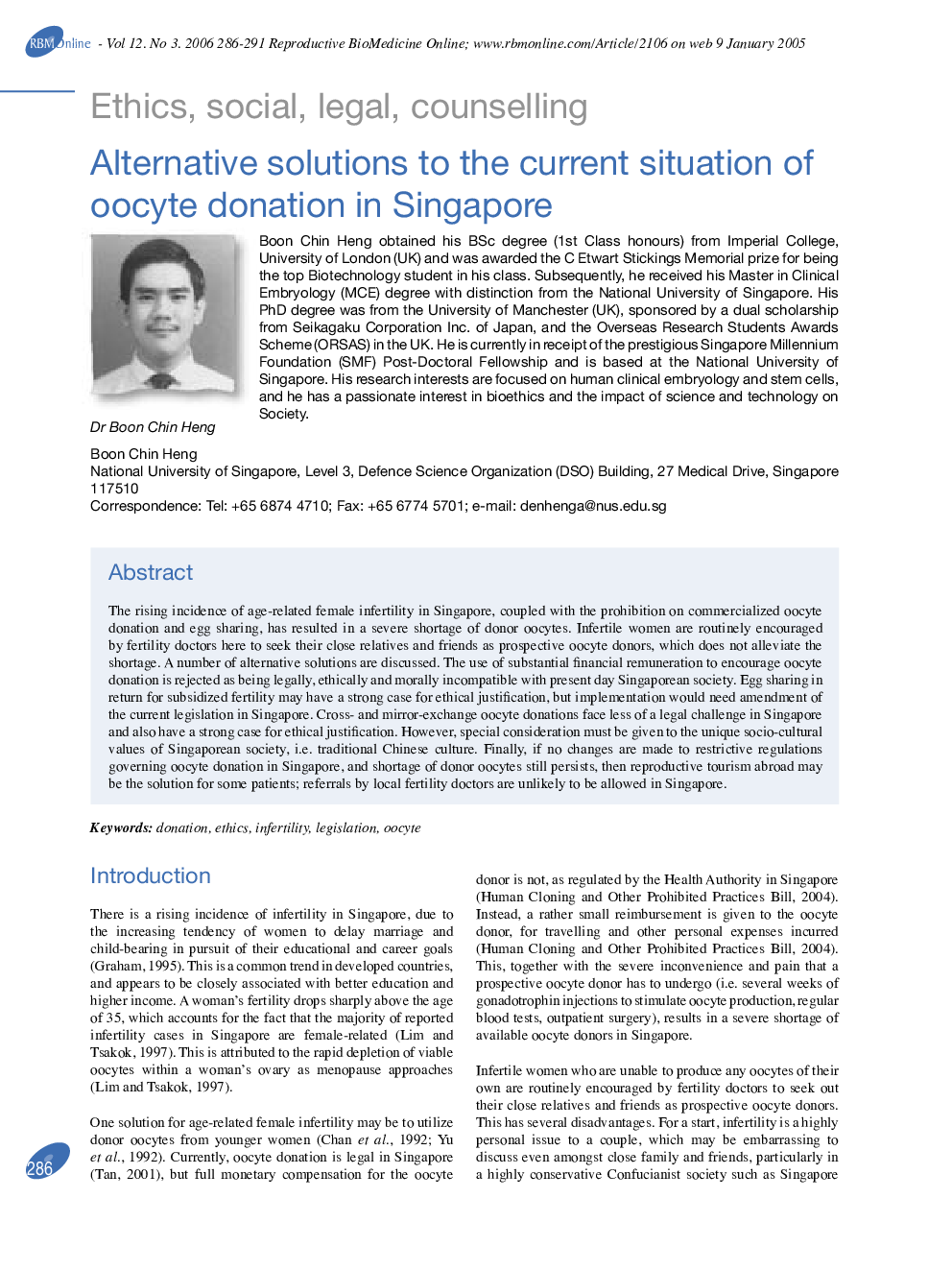| Article ID | Journal | Published Year | Pages | File Type |
|---|---|---|---|---|
| 3973557 | Reproductive BioMedicine Online | 2006 | 6 Pages |
The rising incidence of age-related female infertility in Singapore, coupled with the prohibition on commercialized oocyte donation and egg sharing, has resulted in a severe shortage of donor oocytes. Infertile women are routinely encouraged by fertility doctors here to seek their close relatives and friends as prospective oocyte donors, which does not alleviate the shortage. A number of alternative solutions are discussed. The use of substantial financial remuneration to encourage oocyte donation is rejected as being legally, ethically and morally incompatible with present day Singaporean society. Egg sharing in return for subsidized fertility may have a strong case for ethical justification, but implementation would need amendment of the current legislation in Singapore. Cross- and mirror-exchange oocyte donations face less of a legal challenge in Singapore and also have a strong case for ethical justification. However, special consideration must be given to the unique socio-cultural values of Singaporean society, i.e. traditional Chinese culture. Finally, if no changes are made to restrictive regulations governing oocyte donation in Singapore, and shortage of donor oocytes still persists, then reproductive tourism abroad may be the solution for some patients; referrals by local fertility doctors are unlikely to be allowed in Singapore.
